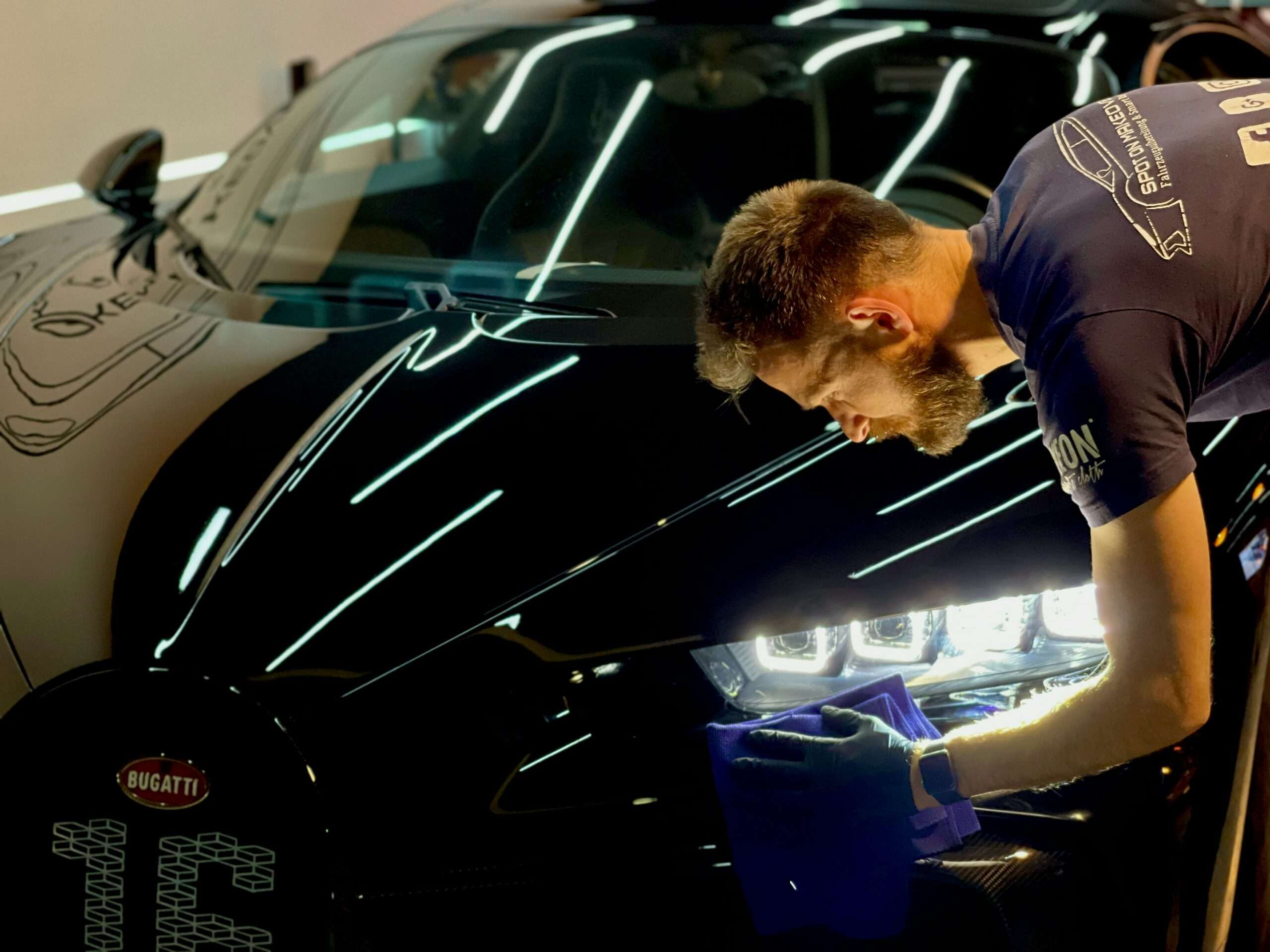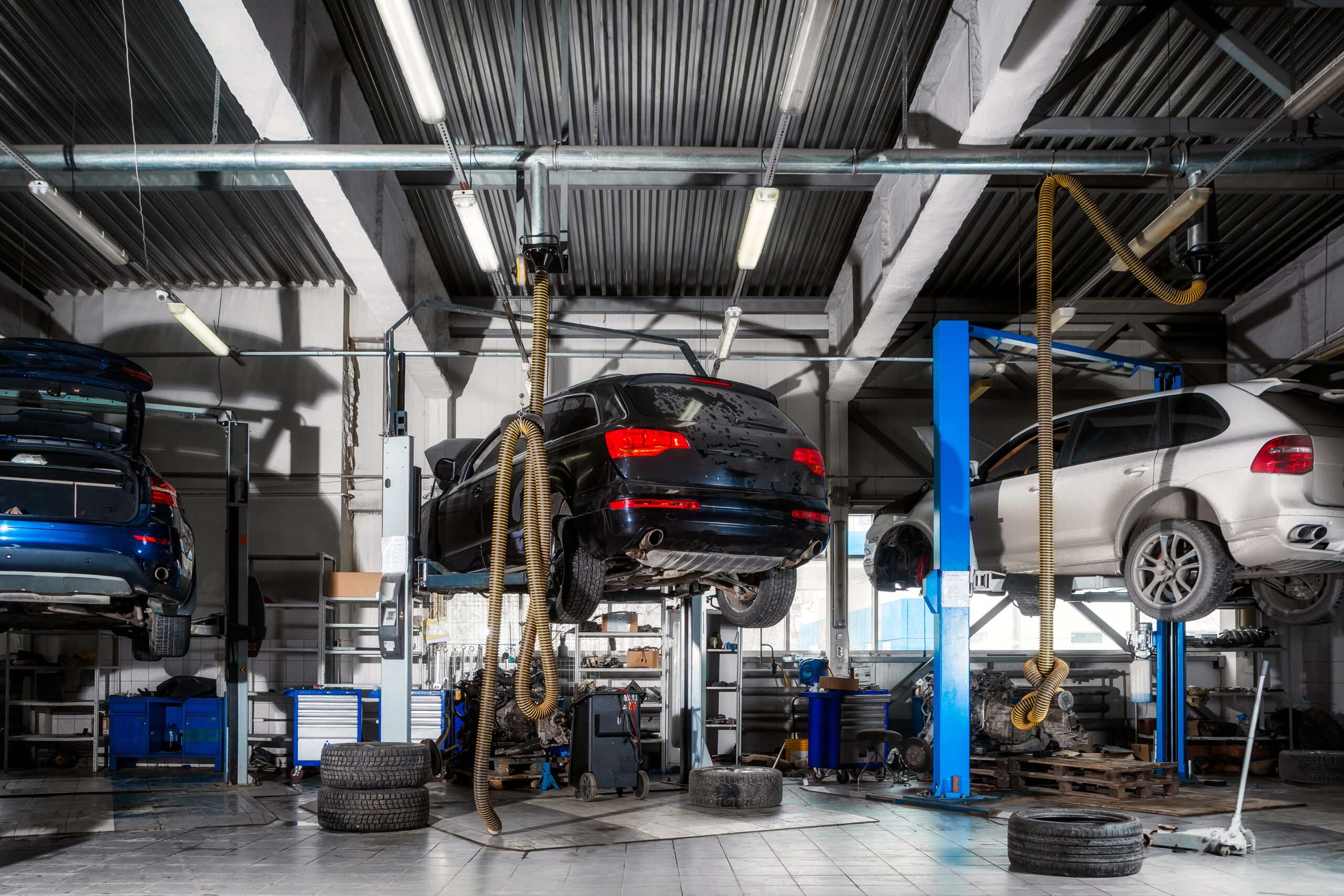In the world of car detailing, standing out is key.
But how do you rise above the noise?
The answer lies in SEO, or Search Engine Optimization.
SEO is a powerful tool that can help your car detailing business shine online. It’s about making your website more visible to search engines. When done right, SEO can drive more traffic to your site. This means more potential customers discovering your services.
In this comprehensive guide, we’ll explore the ins and outs of SEO for car detailing.
Whether you’re a mobile detailer or own a local car wash, this guide will help you clean up your revenue with effective SEO strategies.
Understanding the Basics of Car Detailing SEO
SEO is a digital marketing strategy that focuses on improving a website’s visibility on search engines.
Auto detailing SEO involves optimizing your website and online content with keywords related to your services. This helps search engines understand what your business offers and rank your site higher in search results.
By implementing effective car wash SEO strategies, you can attract more potential customers to your website, increase your online presence, and ultimately, boost your revenue.
Why SEO for Car Wash Companies Matters
In today’s digital age, most consumers turn to the internet to find local businesses and services. This includes car detailing services.
Having a strong online presence is crucial for attracting these potential customers. Having strong car wash website SEO plays a key role in building this online presence.
By optimizing your website for search engines and customers, you can increase your visibility in search results. This can lead to more website traffic, more leads, and ultimately, more customers for your car detailing business.
Here are a few reasons why SEO for car wash services is important for your detailing business:
- Increases online visibility
- Attracts more potential customers
- Builds credibility and trust
- Gives you a competitive edge
- Improves user experience on your website
The Competitive Edge of SEO for Car Detailers
The car detailing industry is highly competitive. Many detailing businesses offer similar services, making it difficult to stand out.
Focusing on auto detailing SEO gives your business a competitive edge many others are ignoring. When your detailing business ranks higher in search results, it becomes more visible to potential customers.
This increased visibility can lead to more website traffic, more leads, and ultimately, more customers for your car detailing business.
Local SEO for Car Detailing: Attracting Customers in Your Area
Local SEO is crucial for nearly any service business, especially car detailing businesses and car washes.
Most customers are looking for car detailing services or a car wash near their home or work. By tuning your car wash website SEO for local search terms, you can attract these nearby customers. This includes using location-specific keywords, such as targeting a phrase like “car detailing in [city, state],” and optimizing your Google Business Profile (GBP) listing.
By focusing on local SEO for car detailing, you can help your business appear in local search results and Google Maps listings. This can significantly increase your visibility to local customers and lets them know you offer services in their area.
Keyword Research for Car Detailing SEO
Keyword research is a fundamental part of all SEO — not just SEO for car detailing. This process involves identifying the words and phrases potential customers use when searching for car detailing services.
By understanding the terms potential customers use to find your services, you can optimize your website to rank for them. This can increase your visibility in search results and attract more potential customers.
Follow these helpful tips for conducting keyword research for auto detailing SEO:
- Use keyword research tools like Google Keyword Planner or Semrush
- Look for keywords with high search volume and low competition
- Consider long-tail keywords, which are more specific and less competitive
- Don’t forget about local keywords, like “car detailing in [your city]”
- Remember that your customers may search in ways you wouldn’t, so be creative with your research
- Use Google autofill to help find popular keywords users search in car detailing
 Finding the Right SEO Keywords for Car Detailing
Finding the Right SEO Keywords for Car Detailing
Finding the right keywords for your car detailing services is crucial. These are the keywords potential customers use when searching for the services you offer.
Start by making a list of all the services you offer. Then, use a keyword research tool to find related keywords.
Remember to consider the intent behind each keyword. Some people might be looking for information, while others might be ready to book a service. Four main search intent categories exist:
- Informational: These are people who are searching for information on a topic. They may not necessarily be ready to purchase, but you can earn their trust by offering them helpful content that may eventually lead to them being a customer.
- Navigational: These are people seeking a specific company or webpage. For example, someone searching for “Amazon log on page.”
- Commercial: These are people who are looking to purchase and should be one of your focus areas. For example, someone searching for “having my car waxed vs sealed.”
- Transactional: These are people who are looking to buy right now. For example, they may search “buy a monthly detailing package.”
Tools and Techniques for Effective Keyword Research
You have numerous tools and techniques to pick from for effective keyword research. If you want to go the free route, Google Keyword Planner is a popular tool that can provide valuable insights. While Keyword Planner will give you a general idea of how much search volume a keyword gets and its competitiveness, it’s still a free tool. This means it has some limitations, such as its lack of precise numbers. Instead, it offers general ranges. For example, checking “automotive SEO” on Keyword Planner shows it receives 1,000to 10,000 monthly searches — that’s a huge range.
 Also keep in mind that Google Keyword Planner is designed to support Google Ads, not organic search. So, it focuses primarily on stats marketers would focus on for paid ads.
Also keep in mind that Google Keyword Planner is designed to support Google Ads, not organic search. So, it focuses primarily on stats marketers would focus on for paid ads.
Semrush and Ahrefs are other powerful tools. They can provide more in-depth data on organic search volume, competition, search intent, and more. These tools also allow you to track how your website is ranking for keywords, so you can adjust your strategy as needed. Semrush also includes artificial intelligence (AI) that helps you determine your potential ranking for a keyword. This AI is still new and a little inaccurate, but it’s still a powerful tool to know if a keyword is worth targeting.
You have other free options too, such as Google’s “People also ask” and “Related searches” features. These powerful tools can help you get into the searcher’s mind and understand what keywords — long- and short-tail — to include in your copy.
The People Also Ask section is usually just below the sponsored ads and will include a handful of questions users ask related to your main search. For example, we searched “car detailing” and these four questions populated:
The related searches is generally a little further down and can help by giving you alternative keyword ideas or ideas for all-new content. Here’s what populated for a “Car detailing” search:
So, which tool is best? Honestly, a combination of them all is ideal. However, if you have a tight budget, you can start with the free options and move up to the paid services. Also, Semrush offers a free plan with limited keyword research capabilities. That may be plenty to get your car detailing business moving for now.
On-Page SEO Strategies for Car Detailing Websites
On-page SEO refers to the optimization of elements on your website. This includes content, HTML source code, and images.
Effective on-page SEO can improve your site’s visibility in search results. It can also enhance the user experience, leading to higher engagement and conversion rates.
Here are a few on-page SEO strategies for car detailing websites:
- Use target keywords in your content, but avoid keyword stuffing
- Optimize your meta tags, including title tags and meta descriptions
- Use header tags (H1, H2, etc.) to structure your content
- Optimize your images with alt text and descriptive file names
Optimizing Your Content with Target Keywords
Once you’ve identified your target keywords through keyword research, it’s time to optimize your content. This involves incorporating these keywords into your website content in a natural and meaningful way.
Remember, the goal is to provide valuable information to your audience, not to trick search engines. Avoid keyword stuffing, as this can lead to penalties from search engines.
Instead, focus on creating high-quality content that answers your audience’s questions and meets their needs. This will naturally lead to better rankings and more traffic.
Enhancing User Experience for Better Rankings
User experience (UX) is a critical factor in SEO. Search engines like Google want to provide the best possible results to their users. This means they favor websites that offer a great user experience.
You can enhance UX on your car detailing website in several ways.
First, ensure your site is easy to navigate. Users should be able to find the information they need quickly and easily.
Second, make sure your site loads quickly. Slow load times can frustrate users and lead to higher bounce rates.
Finally, ensure your site is mobile-friendly. More and more people are using their mobile devices to search for services, so it’s crucial that your site looks and functions well on all devices.
Off-Page SEO: Building Authority and Trust
Off-page SEO refers to actions taken outside of your own website to impact your rankings within search engine results pages (SERPs). It’s about improving perception of your site’s popularity, relevance, trustworthiness, and authority.
This is achieved by other reputable places on the Internet (pages, sites, people, etc.) linking to or promoting your website, and effectively “vouching” for the quality of your content.
Here are a few off-page SEO strategies for car detailing websites:
- Creating quality content that attract high-quality backlinks from other sites
- Managing online reviews and social proof
- Engaging on social media and building a strong online presence
- Holding and sponsoring events and marketing this sponsorship to local media for coverage
The Power of Quality Backlinks
Backlinks, or inbound links, are links from other websites that point to your site. They’re like votes of confidence from other sites, signaling to search engines that your content is valuable and trustworthy.
But not all backlinks are created equal. Quality matters more than quantity. Links from reputable, high-authority sites related to your niche carry more weight than links from low-quality or spammy sites.
Building high-quality backlinks can be challenging, but it’s worth the effort. Guest blogging, creating shareable content, and participating in relevant forums or online communities can all help you earn valuable backlinks.
Managing Online Reviews and Social Proof
Online reviews and social proof play a crucial role in off-page SEO. They can influence how search engines perceive your business, and they can also sway potential customers.
Positive reviews can boost your business’s visibility in local search results and improve your online reputation. On the other hand, negative reviews can harm your SEO and deter potential customers.
It’s important to actively manage your online reviews. Respond to reviews (both positive and negative) in a timely and professional manner. Encourage satisfied customers to leave reviews, and address any issues or complaints promptly and effectively.
Technical SEO: Ensuring Your Site Meets Search Engine Standards
Technical SEO refers to the process of optimizing your website for the crawling and indexing phase. It’s about improving the infrastructure of your site to help search engine spiders crawl and index your site more effectively.
Key aspects of technical SEO include mobile optimization, site speed, secure browsing (HTTPS), and creating a sitemap. These elements can significantly impact your site’s visibility in search engine results.
Here are a few technical SEO considerations for car detailing websites:
- Mobile optimization
- Site speed
- Secure browsing (HTTPS)
- Creating and submitting a sitemap
Mobile Optimization and Site Speed
With the rise of mobile browsing, having a mobile-friendly website is no longer optional. It’s a necessity. Google uses mobile-first indexing, which means it primarily uses the mobile version of a site for indexing and ranking.
Your site should be responsive, meaning it automatically adjusts to fit the screen size of the device it’s being viewed on. It should also be easy to navigate on a mobile device, with clear, easy-to-click buttons and links.
Site speed is another crucial aspect of technical SEO. A slow-loading site can frustrate users and lead to higher bounce rates. Google considers site speed as a ranking factor, so it’s important to ensure your site loads quickly.
Secure Browsing and HTTPS
Secure browsing is another important aspect of technical SEO. Users want to know their information is safe when they visit your site. And search engines like Google prioritize sites that provide a secure browsing experience.
HTTPS (Hypertext Transfer Protocol Secure) is the secure version of HTTP. It means all communications between your browser and the website are encrypted.
If your site isn’t already using HTTPS, it’s time to make the switch. Not only will it help protect your users’ information, but it can also give you a slight boost in search engine rankings.
Measuring Your SEO Success
Once you’ve implemented your SEO strategies, it’s crucial to measure their success. This involves tracking your site’s performance and analyzing the data to understand what’s working and what’s not.
There are several metrics you can track to measure your SEO success. These include organic traffic, keyword rankings, bounce rate, and conversion rate. Monitoring these metrics can provide valuable insights into your SEO efforts.
Remember, SEO is a long-term strategy. It can take time to see results — typically nine to 12 month for sustainable results. But by consistently tracking your performance, you can make data-driven decisions to improve your SEO and boost your car detailing business.
Tools for Tracking Performance and Analytics
You have numerous tools available to help you track your SEO performance and analytics. Google Analytics 4 (GA4) and Google Search Console (GSC) are two of the most popular and powerful tools. Both are free but do require some technical skill to set up.
GA4 provides detailed insights into your website’s traffic, user behavior, and conversion rates. It can help you understand where your traffic is coming from, what pages users are visiting, and how long they’re staying on your site. GA4 is more of an all-around marketing tool with some insight into organic search traffic. The downside is that it operates at the website level, so much of the traffic is anonymized and lacks key detail. But it is excellent for tracking marketing campaigns and their performance.
Google Search Console, on the other hand, focuses on your site’s presence in Google’s search results. What’s great is it operated at the search engine level, so it can show you which keywords your site is ranking for, how often your site appears in search results, and how many people click through to your site. The downside to GSC is it is purely organic traffic, so you cannot track ad campaigns with it. But by combining GSC and GA4, you can get the full picture of your traffic trends.
Adjusting Your Strategy Based on Data
Data should drive your SEO strategy. By analyzing your performance data, you can identify areas of improvement and adjust your strategy accordingly.
For instance, if you notice that certain keywords aren’t driving much traffic, you might need to focus on other, more relevant keywords. Or if your bounce rate is high, it could indicate that users aren’t finding what they’re looking for on your site, and you may need to improve your content.
Remember, SEO is not a set-it-and-forget-it strategy. It requires ongoing monitoring and adjustments to stay ahead of the competition and keep up with changes in search engine algorithms.
Common SEO Mistakes to Avoid in Car Detailing
While SEO can significantly boost your car detailing business, certain mistakes can hinder your progress. These errors can lead to lower rankings, less traffic, and ultimately, fewer customers.
One common mistake is neglecting local SEO. Many car detailing businesses serve local customers, so it’s crucial to optimize for local search. This includes claiming your Google My Business listing, using local keywords, and ensuring your NAP (Name, Address, Phone Number) information is consistent across the web.
Another common error is keyword stuffing. While keywords are essential for SEO, overusing them can harm your rankings. Search engines prefer natural, user-friendly content. So, use your keywords strategically and avoid excessive repetition.
Lastly, many businesses overlook the importance of mobile optimization. With more people using mobile devices to search for services, having a mobile-friendly website is no longer optional. If your site isn’t mobile-friendly, you could be missing out on a significant amount of potential customers.
Revving Up Your Car Detailing SEO Strategy
SEO is a powerful tool for any business, and car detailing is no exception. By understanding and implementing effective car detailing SEO strategies, you can increase your online visibility, attract more customers, and ultimately, boost your revenue.
Remember, SEO is not a one-time task but an ongoing process. It requires regular monitoring, adjustments, and updates to stay ahead of the competition. Stay informed about the latest SEO trends and changes in search engine algorithms to keep your strategy effective.
Investing time and resources in SEO can significantly benefit your car detailing business. With the right approach, you can clean up your revenue and drive your business to new heights. Start revving up your car detailing SEO strategy today! Need a hand? OptioPro SEO offers full SEO and digital marketing services to ca detailing companies and car washes. Reach out to one of our specialists today for a custom-built package for your detailing business.
Required


 Finding the Right SEO Keywords for Car Detailing
Finding the Right SEO Keywords for Car Detailing







 by averie woodard (https://unsplash.com/@averieclaire)
by averie woodard (https://unsplash.com/@averieclaire) by CHUTTERSNAP (https://unsplash.com/@chuttersnap)
by CHUTTERSNAP (https://unsplash.com/@chuttersnap) by Samuele Errico Piccarini (https://unsplash.com/@samuele_piccarini)
by Samuele Errico Piccarini (https://unsplash.com/@samuele_piccarini) by Melanie Deziel (https://unsplash.com/@storyfuel)
by Melanie Deziel (https://unsplash.com/@storyfuel)